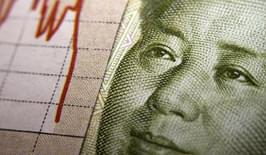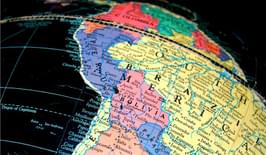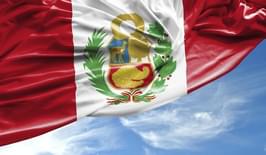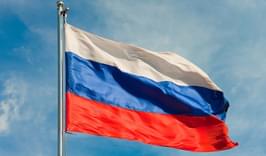Macro
Fallout spreads from Brexit bomb
Investor concerns over Brexit are causing short term volatility in LatAm assets, and the long term effects of Brexit could cause global volatility in the region and beyond.
14 Jun 2016
Will China's inclusion with MSCI ease volatility?
China’s potential inclusion in the MSCI Emerging Market Index will likely be welcomed by investors, providing further investment opportunities and reducing the overall risk for them, while the volatility seen over the past few months will likely subside upon full inclusion.
13 Jun 2016
Only Brexit clouds EM outlook
While emerging markets have benefitted from a dovish stance from the US Federal Reserve and low yielding developed market bonds, the threat of Brexit could cast a shadow over their performance.
13 Jun 2016
LatAm sees back-to-back annual recession for first time in 30 years
The World Bank has slashed growth forecasts across the globe, revising down its previous figure of 2.9% to 2.4%, and has warned against a further slowdown in the world’s major emerging markets. Whilst sluggish growth persists across most EMs, the World Bank predicts Latin America’s economy will experience the first back-to-back years of recession in more than 30 years.
10 Jun 2016
As EM corporates boost refinancing activity, will increased risk follow?
Refinancing activity across emerging markets has increased, especially amongst the non-financial corporate sector outside of Europe and Russia, with many of these entities staring down the barrel of upcoming maturities in 2017.
9 Jun 2016
Daily Roundup
Brazil, Venezuela drag on World Bank outlook – Vale tightens pricing on US$1.25bn Eurobond – Ghana to sell US$1bn Eurobond between June and September – Argentina tables PPP reforms
8 Jun 2016
Peruvian elections unlikely to offer significant new investment opportunities
Regardless of which candidate wins the elections in Peru, the market friendly sentiment across the country is likely to remain. Significant investment opportunities are unlikely to present themselves once political activity has quietened, but smaller opportunities for international investors will remain if the country is able to maintain its level of growth amid lower commodity prices.
7 Jun 2016
Russian corporates pick market return carefully
Russian corporates are returning to the international markets, but not as a result of the sovereign’s successful Eurobond in May. Although some such as NLMK will take advantage of cheaper foreign borrowing rates, due to effectively being blocked from the markets by Western sanctions, in general Russian corporates have strong credit positions and do not need significant dollar funding.
7 Jun 2016
Sub-Saharan Africa split on Eurobonds
Sovereign issuers across Sub-Saharan Africa have been relatively quiet on the Eurobond front this year. Ghana has opted for a syndicated loan instead of a Eurobond over fears of paying high yields; however Nigeria could end the drought and is looking to tap the Eurobond market to fund its budget deficit.
6 Jun 2016
Concern, but not panic over rising quasi-sovereign debt levels
Although emerging market quasi-sovereign debt levels are increasing, positive steps to mitigate risk are evident in certain sovereigns’ intervention in their entity’s debt management, as in the Brazilian government’s shake up of Petrobras’ executives. Although many quasi-sovereigns such as Pemex and Petrobras have high debt ratios, only some like Ematum have precarious financial positions.
6 Jun 2016









